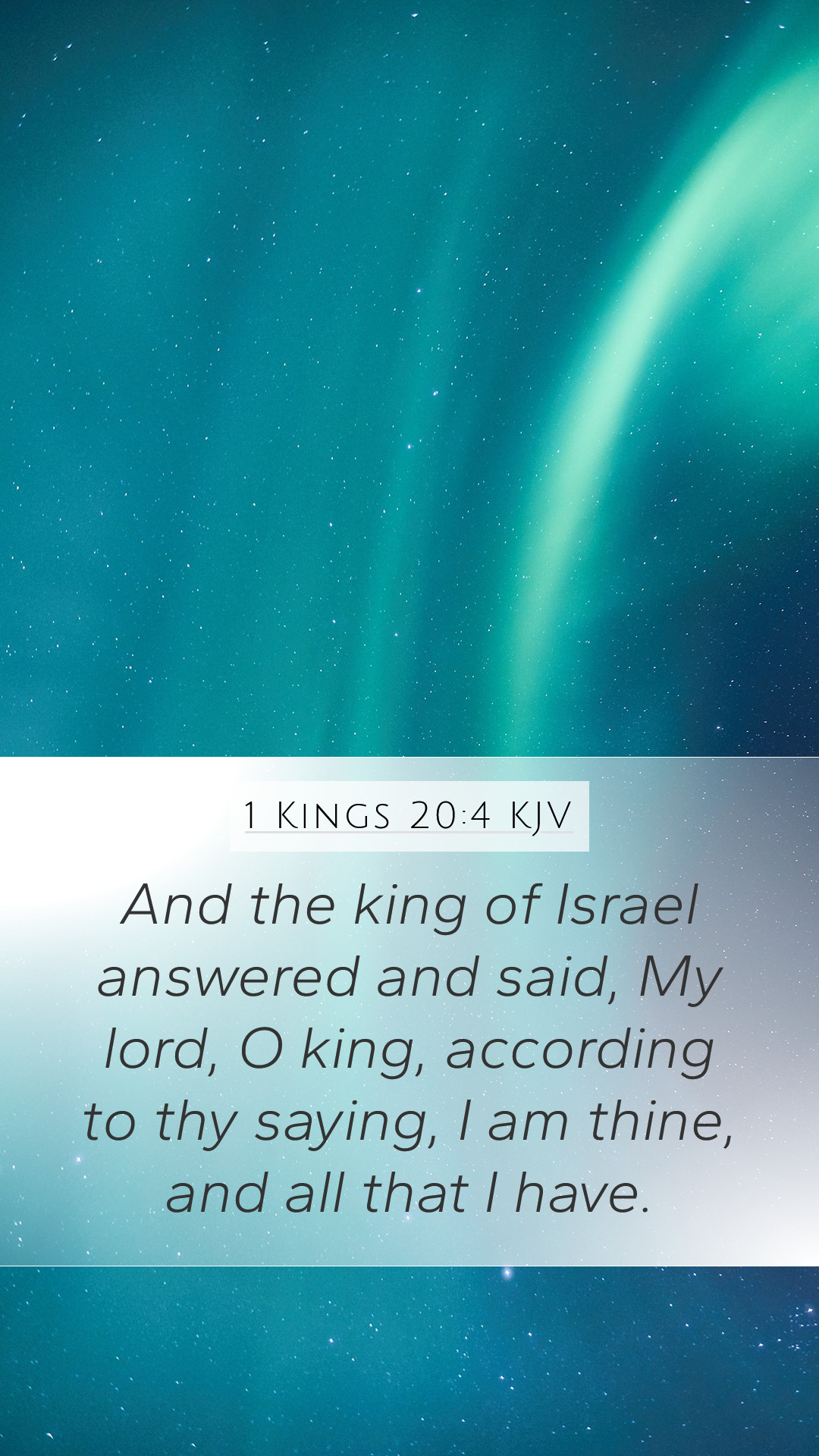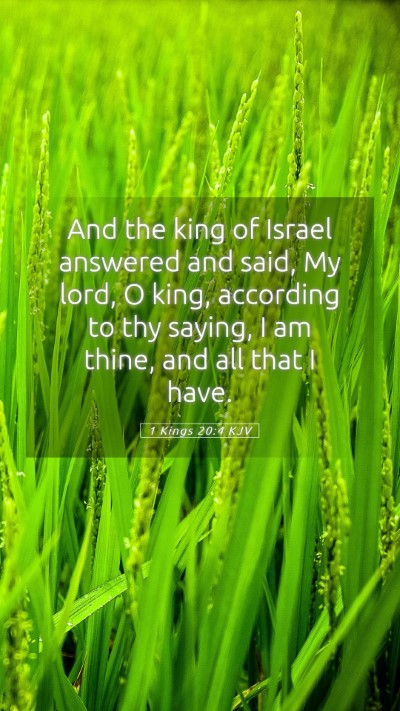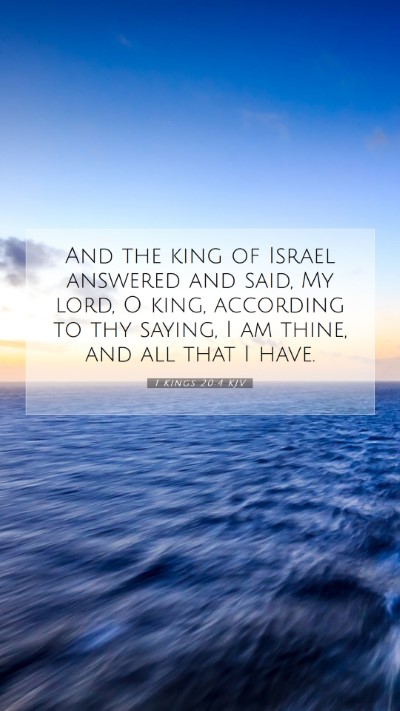Meaning and Interpretation of 1 Kings 20:4
Bible Verse: 1 Kings 20:4
“And the king of Israel answered and said, My lord, O king, according to thy saying, I am thine, and all that I have.”
Summary and Commentary
This verse captures a pivotal moment in the confrontation between the king of Israel, Ahab, and Ben-Hadad, the king of Syria. The response exhibits Ahab's willingness to submit to Ben-Hadad's demands, demonstrating themes of loyalty, authority, and the complexities of leadership.
Detailed Exegesis
The verse begins with Ahab's reply to Ben-Hadad's ultimatum. His response is immediate and revealing. Ahab essentially places himself and his resources at Ben-Hadad's disposal. This indicates several key themes:
- Submission to Authority: Ahab’s expression reflects a submission that can be interpreted as either a pragmatic move to save his kingdom or as a sign of weakness.
- Diplomatic Maneuvering: In ancient cultures, such responses were common in diplomatic exchanges, where self-preservation often dictated the terms of engagement.
- Historical Context: Understanding Ahab's reign and the geopolitical tensions with Syria provides crucial context to his response. Throughout Scripture, the relationships between kingdoms often reflect broader theological and moral lessons.
- Character Insights: Ahab’s character is complex; he often vacillated between seeking God’s guidance and succumbing to fear and peer pressure from powerful adversaries.
Commentators’ Insights
The responses from Matthew Henry, Albert Barnes, and Adam Clarke provide illuminating perspectives:
- Matthew Henry: Henry emphasizes that this verse shows Ahab's willingness to yield entirely, and this highlights the importance of understanding one's position before God and the need for steadfastness in faith, rather than succumbing to earthly pressures.
- Albert Barnes: Barnes notes that Ahab’s response not only reflects his political strategy but also showcases the human tendency to prioritize immediate survival over divine allegiance, thus offering a lesson in the importance of prioritizing one's faith and commitments.
- Adam Clarke: Clarke discusses the notion that Ahab’s response might foreshadow the eventual downfall he would face due to his failure to rely on God and his tendency to compromise with sinful practices.
Theological and Practical Applications
1 Kings 20:4 serves as a strong reminder of the tension between obedience to God and the pressures of worldly authority. The implications for modern readers can be profound:
- Trust in God: Even when faced with overwhelming authority, believers must remember to prioritize their faith and commitments to God over earthly demands.
- Assessing Authority: Understanding who we are yielding control to, in a spiritual and practical sense, is crucial for Christians today — are we submitting to the will of God or to other pressures?
- Engagement in Prayer: Intentional prayer and reliance on God’s guidance can help believers navigate complex relationships with authority figures.
Additional Bible Cross References
- 1 Kings 22:1-4 – Ahab’s continued dealings with foreign powers.
- 2 Kings 1:1-2 – Further context to Ahab's reign and his dealings with Syria.
- Proverbs 29:25 – The fear of man versus the fear of God.
Conclusion
1 Kings 20:4 provides not only a historical account but also deep spiritual insights regarding authority, submission, and the need for faithfulness to God. As modern believers reflect on Ahab's choices, they are encouraged to scrutinize their engagements with worldly authorities and strive for a relationship that prioritizes divine allegiance.
Ultimately, the study of this verse provides rich material for Bible study insights, guiding believers in Bible verse interpretations and understanding Scripture in a deeper way.


